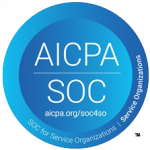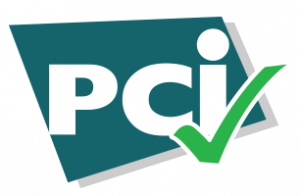You don’t need us to tell you that claim denials have a huge impact on your organization’s bottom line. Administrative costs associated with healthcare claim denials are estimated to top $20 billion per year, while the downstream effects of delayed payments, appeals, and recoveries include not only financial strain, but also decreased quality of care.

Understanding denial codes, as well as the best way to prevent them, is essential for your RCM staff if you want to stay efficient and profitable. To that end, our team at Revco has compiled some of the most common denial codes, how to address them, and how to minimize the impact of denial codes on your organization’s financial health.
The Basics of Denial Codes
Denial codes are alphanumeric codes that are assigned by insurance companies (payers), whether private or public, to show why a specific insurance claim was denied—in other words, not paid by the insurance company. For example, CO-11 means “Error in Coding.” CO-18 means “Duplicate Claim.”
Some denials are “hard,” or irreversible without an appeal, while others are “soft,” or easily correctable. Hard denials require a greater investment of your team’s time and resources; soft denials, on the other hand, can usually be reversed by submitting whatever corrected or missing information is required.
Another important categorization is whether a claim is classified as preventable or non-preventable. The good news is that the vast majority—nearly 90%, according to recent data—are preventable. This means that there is plenty of room for improvement in your claim denials rate.
Because claims denials are rising across the board, with 89 percent of hospitals and health systems reporting a rise between 2020 and 2023, you’re probably seeing these and other denial codes more frequently than you used to. Let’s take a closer look at some of the most common ones, and explore how denial management analytics can help you identify patterns in your denials and develop targeted interventions.
Deciphering the Most Common Denial Codes
There are thousands of medical billing codes and hundreds of denial codes—but there are just a few that cause by far the most headaches for RCM teams.
Claim Submission Errors
These denial codes refer to any kind of error or missing information in the initial claim.
CO-4
Meaning: Missing or incorrect modifier.
How to prevent: If a procedure code conflicts with a modifier that was used, or if there is no modifier and the procedure requires one, the claim will be rejected. Staff should have access to updated codes and modifiers at all times.
How to fix: Correct and resubmit, and contact the payer directly if the claim is still denied.
CO-15
Meaning: Missing or invalid authorization number. For procedures that require prior authorization from a payer, an authorization number is provided once authorization is given. If this number is incorrect or missing, the claim will be denied.
How to prevent: Use payer portals and automated systems to track and verify authorization. Ensure staff knows how to decipher which procedures require authorization and how to document it once it’s been given.
How to fix: If authorization was given, contact the payer to determine the authorization number. If not, put the claim on hold and try to obtain retroactive authorization
CO-16
Meaning: Missing information, most often missing modifiers, Social Security numbers, or technical or demographic mistakes.
How to prevent: Conduct staff training to ensure your staff knows that even one piece of missing information, like the date of a patient’s accident, can trigger a denial. Request that your team obtains all necessary information from each patient, and implement a process for double-checking—automatically, if possible—before submission.
How to fix: Obtain or correct missing/incorrect information and re-submit.
CO-18
Meaning: Duplicate claim. This can occur if a provider submits two claims for the same procedure, whether accidentally or without a modifier. This can also occur if a provider submits the same claim to both primary and secondary insurance, or if a provider submits a corrected claim that is not indicated as corrected and is read as a duplicate.
How to prevent: Make sure your claims are not going to both primary and secondary insurance, and use an automated system to check for duplicate claims.
How to fix: If you’re submitting a corrected claim, make sure you’re using the code requested by the payer to ensure it’s not read as a duplicate.
Eligibility and Coverage Issues
These codes are used if there are issues with a patient’s eligibility or coverage, including contractual obligations.
CO-45
Meaning: Charge exceeds fee schedule. This means the amount a provider charged for a specific service exceeds the agreed-upon fee between the payer and provider.
How to prevent: Periodically review your fee contract with the payer and ensure charges are in line with the contracted rates.
How to fix: If the fee is actually above what was agreed upon, work with the patient or a patient representative to establish a payment plan for the remainder of the fee.
CO-22
Meaning: Coordination of benefits. If a patient has primary and secondary insurance, and a claim is submitted to the wrong payer, you’ll receive this denial code.
How to prevent: Always submit the claim to the primary insurer first. The primary can then submit it to the secondary or tertiary if need be. You can also conduct patient eligibility checks to make sure the correct insurer is identified as primary or secondary.
How to fix: Ensure patient insurance information is updated and on file. Then, re-submit to the correct insurer, or coordinate with the primary insurance provider as to how to move forward.
CO-167
Meaning: Diagnosis not covered. Certain diagnoses may be outside a specific payer’s coverage areas.
How to prevent: Make sure diagnoses are being coded correctly by referring to the payer’s diagnosis codes.
How to fix: If revisions or corrections are needed, make changes and re-submit.
Medical Necessity Denials
These denial codes are related to incomplete or inadequate documentation of a procedure’s medical necessity.
CO-50
Meaning: The procedure has not been deemed medically necessary by the payer.
How to prevent: Train staff on how to adequately document the need for a procedure, including details on the patient’s diagnosis, symptoms, treatment plan, and other relevant information. If there are any uncertainties about requirements to prove medical necessity, contact the payer directly and maintain open communication. For procedures where this may be an issue, you can also contact the payer about pre-authorization before proceeding, to avoid any potential denials due to lack of authorization.
How to fix: Check to see whether there is any missing information and gather additional documentation. Then, submit a comprehensive appeal letter that clearly communicates why the procedure was medically necessary.
CO-150
Meaning: Also related to medical necessity, this denial code indicates that the level of care or service provided was not justified based on the medical information submitted.
How to prevent: Just as with CO-50, it’s important that staff are trained in best practices for documentation as to why a procedure is necessary. Staying in communication with payers and up-to-date on their policies is also part of preventing these types of denials.
How to fix: Review all documentation carefully and address any discrepancies or missing information. Gather additional support as needed, and submit an appeal letter.
CO-151
Meaning: The information provided does not support the frequency of services provided (i.e., the same or similar service was already provided, or exceeds the frequency limits on the policy).
How to prevent: Prevention of CO-151 is quite similar to CO-50 and CO-150. Thorough, accurate documentation to support why a service was necessary at that frequency is crucial.
How to fix: As with the other medical necessity denial codes, gather additional documentation as needed, stay in communication with payers, and submit a detailed appeal letter.
Authorization and Pre-Certification Denials
Pre-authorization has become required for an increasing number of procedures. This can result in surprises for providers who’ve been offering a service for years without any problem, only to find that they were supposed to get authorization due to a recent change.
CO-39
Meaning: The necessary authorization was not requested prior to the provision of services.
How to prevent: Since insurers are requesting pre-authorization for more and more procedures, it’s important to implement a streamlined process for the pre-authorization process. Writing down Standard Operating Procedures (SOPs) for obtaining authorization and conducting internal audits to identify any gaps in the process will go a long way toward preventing CO-39 denials.
How to fix: Verify that you followed the payer’s process correctly and submitted all necessary documentation. Gather supporting documentation to show the medical necessity of the procedure, and contact the payer to discuss the situation. Appeal the denial if necessary.
CO-197
Meaning: Absence of pre-authorization/pre-certification. This means the authorization number that should have been recorded when pre-certification was obtained from the payer is missing from your claim.
How to prevent: Make sure staff are following each payer’s process for obtaining pre-authorization, and that they know which services to request pre-authorization for (and if they aren’t sure, always call the payer!).
How to fix: If you locate the authorization number, you can add that to your claim and ask the payer to re-process it. If not, you can see if it’s possible to obtain retro authorization—authorization after the service has been rendered. If that isn’t a possibility, you can appeal the claim.
CO-198
Meaning: The pre-authorization, certification, notification, or pre-treatment requirements were not met before the service was provided.
How to prevent: Ensure that staff are obtaining the necessary authorizations and/or going through the payer’s notification process. Having a dedicated team to manage this can help, or using automated software that screens for services that require pre-authorization.
How to fix: If the required pre-authorization was not obtained, you can determine whether it makes sense to appeal. If so, gather as much supporting information as possible, and prepare an appeal letter. This is also a good time to determine why the pre-authorization wasn’t obtained—was it a single error? Or was it due to a lack of adequate processes or systems?
performance-driving RCM insights?
Leveraging Data Analytics to Identify Denial Trends
Denials management is best approached with a full suite of tools: trained and experienced staff, ongoing communication with payers, clearly documented SOPs, and—last but not least—comprehensive data analytics to uncover the patterns behind your denials.
Here’s how analytics can give you an advantage in your denials management processes.
Track Denial Code Frequency and Financial Impact
Denials management analytics can uncover which codes you’re seeing most often and what those denials are costing you. Armed with those insights, you can better identify and prioritize high-ROI denials.
Identify Root Causes of Denials
When implemented systematically and refined over time, denials management analytics will show you where your organization’s trouble spots are: coding errors, documentation gaps, payers that deny claims more often, or other common reasons for denials.
When you can see these patterns emerge, you can determine what the root issues of denials are for your organization and develop targeted strategies to address them.
Develop Evidence-Based Interventions
When you can see definitively why your denials are occurring and what types are the most problematic, you can develop data-backed interventions that can actually move the needle on your denials rate.
Whether that’s having the data to predict which services will result in the most denials, or knowing which denial code reversals will offer the highest ROI, with data analytics you’ll be in a stronger position to reduce revenue leakage and, ultimately, serve your patients better.
The Impact of Claim Denials on the Revenue Cycle
Remember: For every denial your organization receives, you can expect to invest $43.84 in trying to reverse it—and of course, many of those attempts will not be successful.
In total, that translates to nearly $20 billion in denial-related expenditures per year for healthcare providers. In industry surveys, RCM leaders repeatedly point to denials management as one of the most critical priorities, with 70 percent of respondents in one survey saying denials management is even more important today than it was pre-pandemic.
What’s more, payers have been denying more claims than they used to, with several organizations, including Kodiak RCA, finding that the percentage of initially denied claims rose from 10.25 in 2020 to 11.99 in 2023.
Dealing with denied claims doesn’t just take away from your organization financially. It also eats up your team’s time, bogging them down in the burdensome appeals process and all the required information gathering, paperwork, and back-and-forth.
But for your patients, denied claims can be an annoying difficulty at best and disastrous at worst, causing weeks of financial uncertainty and even dissuading them from seeking further, necessary care. This is why denials management isn’t just an operational imperative. It’s a patient care imperative.
Revco’s Unique Approach to Denials Management
Denials management is a complex process that requires both technical knowledge and the soft skills to work closely with payers and negotiate the most beneficial outcome.
At Revco, this is what we do best. Our team integrates data-driven processes and relentless persistence into how we work, using actionable analytics to overturn more denials and free up your organization’s cash flow. If that sounds like a good fit for your organization, reach out today.






